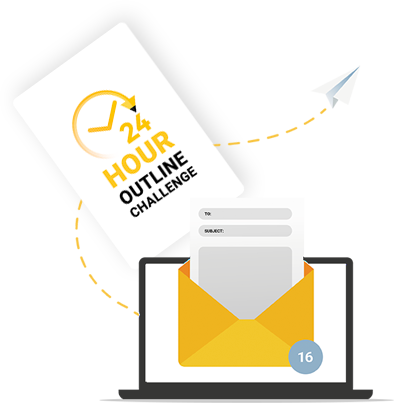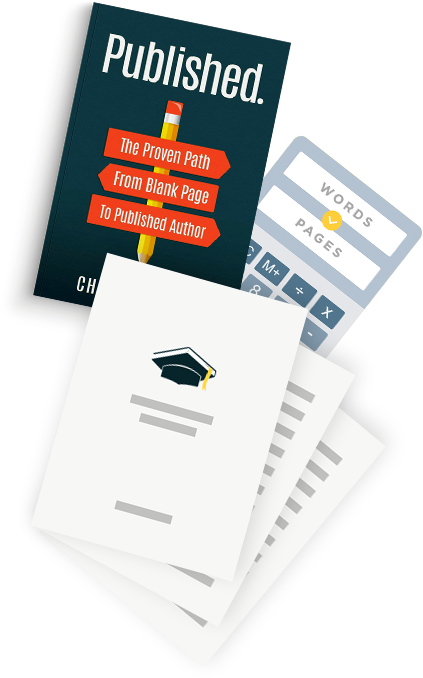Writing contests are events where writers submit their work for review, usually in the hopes of winning a prize. There are lots of different kinds of contests depending on what sort of work you do–some are specific to short stories, for example, or some might only want flash fiction written by or about a certain demographic or theme.
There are writing contests for essays, film scripts, TV pilots, novels, novellas, short stories, poems, and more–there’s almost definitely a writing contest for whatever you want to submit.
This guide to writing contests covers:
- Are writing contests worth it?
- What to watch for
- Free contests for writers
- Writing competitions requiring a fee
- Need some help getting started?
Are writing contests worth it?
For some writers, the thought of entering a writing contest is terrifying. Where do I enter? What are the stakes? Isn’t it terrifying to have people judge my work?
But there’s no need to be afraid! Writing contests are actually pretty laid-back when it comes down to it, and they’re an awesome way to get your work out there. To break down why you should start trying your hand at writing contests, I’ve got 3 P’s for you to keep in mind: publication, prizes, and practice.
Publication
The specifics of the prize will vary depending on the contest, but most of these contests offer publication if you win. If you’re a novelist, you might think there’s no point worrying about short story or flash fiction contests, but that’s not necessarily true!
Think of it like this: if you win the contest, you’ll have some of your work published in a magazine. This means people will see your work! This is your time to make a name for yourself. Get readers interested to follow your journey! Then, when it’s time to publish your novel, you’re already established in the community.
Prize money
Let’s be honest–a little extra cash never hurts. Again, check the details of the contest you’re entering, but a lot of the time, you get some prize money for winning. These prizes can be small, but some of them are upwards of a thousand dollars. Self-publishing can be expensive, and a writing contest is a great way to grab some money and save up.
Practice
Keeping up with writing contests means you have to keep up with your writing. It means you’ll need to produce something you feel is good enough to win you a prize, and that guarantees you’ll be practicing your craft.
Besides practicing your writing, though, you’ll also be getting some practice in other adjacent skills. Maybe you’ll need to write a bio or write an application letter–these are skills that we need to have in this field, but that we often don’t practice when we’re just drafting at home.
Plus, it makes us a little tougher. Having people read your work can be really scary, and entering writing contests will make you less and less worried about it. You’ll get used to the process of submitting, the process of waiting and waiting for results, and you’ll learn how to deal with rejection. These are all vital skills for writers!
Why you should be cautious about some contests
Now, that isn’t to say that writing contests are, without exception, worth entering. So how can you tell which writing contests are for you, and which you should stay away from? Here are a few things to keep in mind when you’re submitting to any writing contest. Note that these don’t necessarily mean that a writing contest is bad or not worth your time–these are just some things to watch for.
Admission fee
When you’re submitting for publication in a literary magazine, you generally want to avoid paying a reading fee. Sometimes smaller publications need them because they’re still getting off the ground, but for the most part, you shouldn’t be paying thirty-five dollar reading fees to get your story published.
In a writing contest, it’s a little more common to see a reading fee. The money is pooled toward the prize money and pays staff to judge the contest. In contests with a bigger money prize, the reading fee will often be a little higher.
However, you shouldn’t be breaking your bank with these reading fees. There are a ton of writing contests you can enter for free. There’s no real benefit to paying to enter a writing contest unless, for some reason, you really love that specific contest or publication.
First publishing rights
Some writers worry about the rights to their work. If they win a prize, does that publication own their story now? If they’ve submitted it, does that mean the magazine owns it forever?
Some magazines ask for work that’s never been published, and others won’t care. It’s the same as when you’re submitting for publication outside of a contest. If you want to be super sure about the rights to your work, check out my final and most important tip:
Read the rules!
Rules for writing contests are going to vary widely by contest. Read the submission guidelines and get all up in that fine print to make extra sure you understand before you submit!
If you have a story that’s been published somewhere else, but this contest demands unpublished work? You can be disqualified or even blacklisted from that magazine. Also, don’t submit a prose poem to a flash fiction contest. Sending off a horror story when the contest specifically asks for coming-of-age pieces would also be a no-no.
Everything you need to know will be available in the contest rules for wherever you’re entering. Know what sort of formatting they look for, whether there’s a word count, what the genre is, and so on. Check this information out ahead of time and save yourself a ton of headache. Don’t get rejected because you forgot to double-space your work on your submission, when ‘double-spaced’ was the format required.
Writing contests for you to enter!
I’ve got a master list of writing contests for you to enter here, and I’ve divided it up by category: first, we’ll cover writing contests that are totally free, and then we’ll take a look at some with a submission fee.
Free-to-enter contests
Young Lions Fiction Award
“Established in 2001, The New York Public Library Young Lions Fiction Award is a $10,000 prize awarded each year to a writer age 35 or younger for a novel or a collection of short stories. Each year, five young fiction writers are selected as finalists by a reading committee of Young Lions members, writers, editors, and librarians. A panel of judges selects the winner.”
Category: Young writers who have written a short story collection or novel.
53 Word Story Contest
“It’s free, it’s fun, and the winner gets published in Prime Number Magazine and receives a free book from Press 53.”
Category: Anyone! This will be judged based on answers to a prompt.
W.Y. Boyd Literary Award for Excellence in Military Fiction
“This award honors the best fiction set in a period when the United States was at war. It recognizes the service of American veterans and military personnel and encourages the writing and publishing of outstanding war-related fiction. Donated by William Young Boyd II.”
Category: Young adult or adult novels (check website for more specific guidelines)
The Gabo Prize
“Lunch Ticket is honored to host The Gabo Prize for Literature in Translation & Multilingual Texts. The Gabo Prize is funded by writers, translators, and Antioch University Los Angeles MFA Alumni Allie Marini and Jennifer McCharen, who launched the prize to support the work of peer translators.”
Willie Morris Awards for Southern Poetry & Fiction
“The Willie Morris Awards for Southern Writing are named for the late author, Willie Morris, in the spirit of his words, “hope for belonging, for belief in a people’s better nature, for steadfastness against all that is hollow or crass or rootless or destructive.” The selected book and poem may contain violence and despair, and feature terrible events, but in the final analysis must be uplifting, and suggest hope and optimism.”
Category: According to the site, authors should read previous issues to determine whether their work is a fit for this publication. No guidelines are listed regarding demographic, age, or previous experience.
Pen/Heim Translation Fund Grants
“Over the 16 years of its existence, the Fund has given grants of $2,000–$4,000 to nearly 200 translations from over 35 languages, including Armenian, Basque, Estonian, Farsi, Finland-Swedish, Lithuanian and Mongolian, as well as French, Spanish, German, Russian, Chinese, Japanese, and Arabic.”
Category: emerging translators and works by marginalized writers
Writing contests (requiring entrance fee)
Newfound Prose Prize
“The Newfound Prose Prize is awarded annually to a chapbook-length work of exceptional fiction or creative nonfiction. The work may be in the form of a long story or essay or a collection of short pieces (60 pages max). Other than the page limit, the only formal requirement is that some aspect of the work must inform or explore how place shapes identity, imagination, and understanding.”
Category: fiction and creative nonfiction
Bumblebee Flash Fiction Contest
“Is your shortest fiction soft and appealing with a hidden sting? Send us your short, sweet, and sassy fiction for a chance to win $300 and publication in Pulp Literature. Get an editorial critique for only $20 more. Judged by flash fiction master Bob Thurber, winner of numerous awards and author of the novel Paperboy.”
Category: flash fiction
Nelligan Prize for Short Fiction
“$2,500 will be awarded for the best short story, which will be published in the fall/winter issue [insert year] of Colorado Review.”
Category: previously unpublished short stories
F(r)iction Contests
“We seek work that actively pushes boundaries, that forces us to question traditions and tastes. If your work takes risks, we want to read it. We like strong narratives that make us feel something and stories we haven’t seen before.”
Category: short stories, flash fiction, poetry, creative nonfiction
Need some help getting started?
Grab our fiction writing prompts to get your story on track for the next contest! Not writing fiction? Not to worry. These prompts can still inspire you. 🙂 Take a peek!



